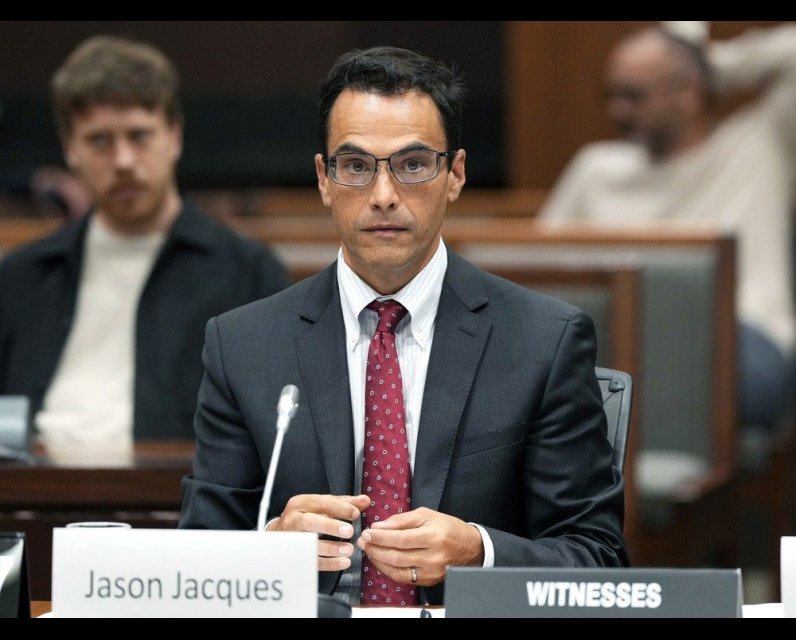Stay informed
Fiscal watchdog accuses Ottawa of exaggerating investment spending

OTTAWA — Ottawa’s fiscal watchdog called out the Carney government Friday for using an “overly expansive” definition of investments that shifts about $94-billion in spending over the next five years to the more palatable capital side of the ledger.
The Parliamentary Budget Officer (PBO), an independent offer who scrutinizes government raising and spending of tax dollars, said in a new report on this year’s budget that the government’s inclusion of such items as corporate income tax expenditures, investment tax credits and operating subsidies should not be considered capital spending.
The PBO report, which also shed new light on Ottawa’s dire fiscal situation, said the government’s “new framework adopts a definition of capital investment that expands beyond the current treatment” used internationally. “The government’s definition of capital investment is too broad.”
The Carney government’s first budget, unveiled last week, marked the first time that Ottawa had separated capital and operational or day-to-day spending. While debates about accounting practices are unlikely to stir many heated debates in Canadian cafes and pubs, economists say it’s important because the new method could lead to more spending.
The government argued that it’s more informative to account separately for day-to-day spending and those capital items that are made with a long-term focus. In his post-budget “road show” this week, Finance Minister François-Philippe Champagne has said the government’s new fiscal practices are in line with what some other countries are doing.
Some economists, however, have questioned the government’s decision to create that distinction, arguing that it’s simply accounting optics and that all types of expenditures must be paid for. A recent report by the C.D. Howe Institute, a leading think tank, criticized the move and questioned the motive. “The large deficits projected in this update cannot be downplayed or disguised by dividing the budget into two new categories.”
Some also worry that the government will pile as many expenses as possible into the “investments” side of the ledger, because they might seem more politically palatable to voters and because the government wants to meet its new goal of balancing its operating expenses within three years.
But Benjamin Tal, the deputy chief economist of CIBC World Markets, said he likes the government’s new accounting because it adds clarity and doesn’t believe it will encourage extra spending.
Capital spending includes many items that are physical assets such as infrastructure, housing, military equipment and even software that are often seen as “investments.” These types of items are often seen as more fiscally responsible because they provide enduring assets and often include sales for Canadian companies. Some capital spending, such as spending on ports, rail and other transportation routes that are designed to make exports more efficient, can also boost productivity and the economy.
Operational costs include big-ticket “day-to-day” items such as transfers to provinces and territories, program spending and salaries for hundreds of thousands of public servants and millions of citizens who receive social service payments.
Carney has started a process to trim operational spending, notably slicing into the growth of the public service, to help pay for increased capital spending.
While acknowledging that there’s some subjectivity in distinguishing between capital and operational spending, PBO Jason Jacques recommends that Ottawa set up an independent expert body to sort through how spending items should be categorized.
The new report also shed further light on Ottawa’s escalating pile of red ink. The Carney government’s first budget, released last week, projected an average deficit of $64.3-billion between this fiscal year and 2029-30, more than double what was projected about a year ago in the 2024 Fall Economic Statement.
The PBO report also said that the federal government now has “limited room to cut taxes or increase spending” if it wants to keep the federal debt-to-GDP ratio stable over the next three decades. “This is different from the last three years, when fiscal policy provided more flexibility to deal with future risks,” said Jacques.
In its first budget, the Carney government forecast a deficit this year of $78.3-billion, the third-highest in Canadian history and the largest ever in a non-pandemic year. The Carney government’s forecast calls for modest dips in the annual deficit over each of the next four years, although the cumulative effect will be another $320-million of new debt before the end of the decade.
The federal government has now accumulated $1.27-trillion in debt, almost half of which has been added over the last five years. With the budget’s updated forecast for this fiscal year, Ottawa is now on pace to amass $593.1-billion in debt over that five-year span, or 46.7 per cent of the total debt accumulated in Canadian history.
The federal government also said this week that it intends to hire a permanent PBO. Jacques, a veteran of the PBO office, has been filling the position on an interim basis since September. In his first few weeks on the job, Jacques was highly critical of government spending, calling it “stupefying,” “shocking” and “unsustainable.”
National Post
Our website is the place for the latest breaking news, exclusive scoops, longreads and provocative commentary. Please bookmark nationalpost.com and sign up for our daily newsletter, Posted, here.




Comments
Be the first to comment